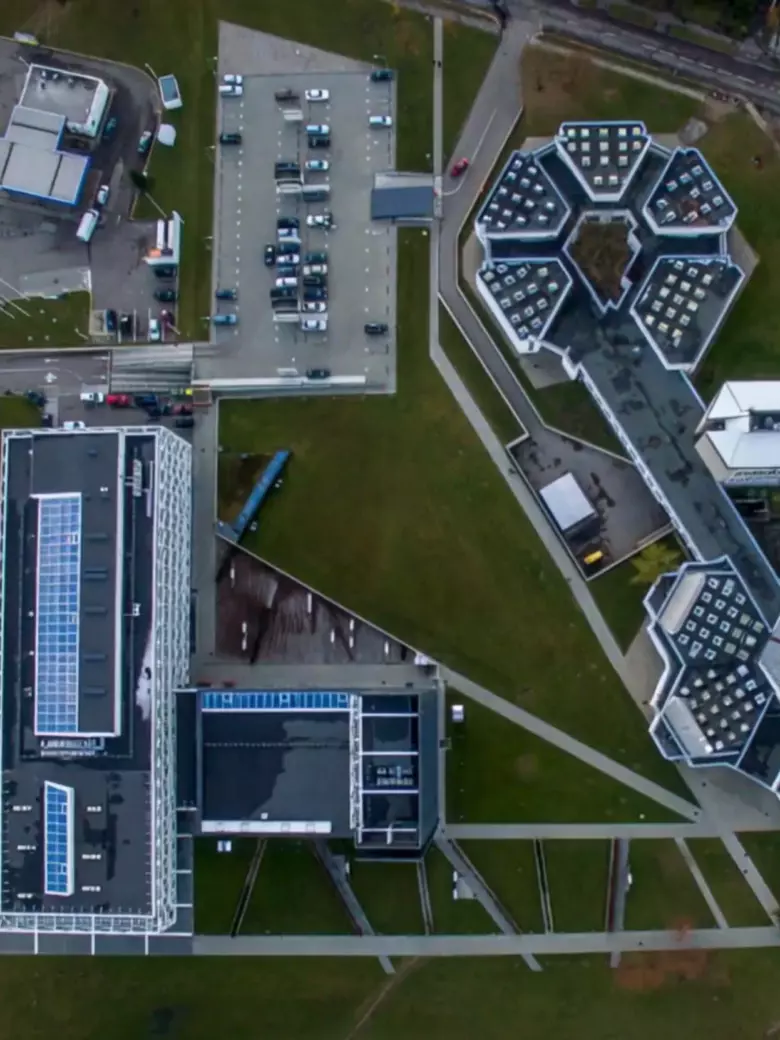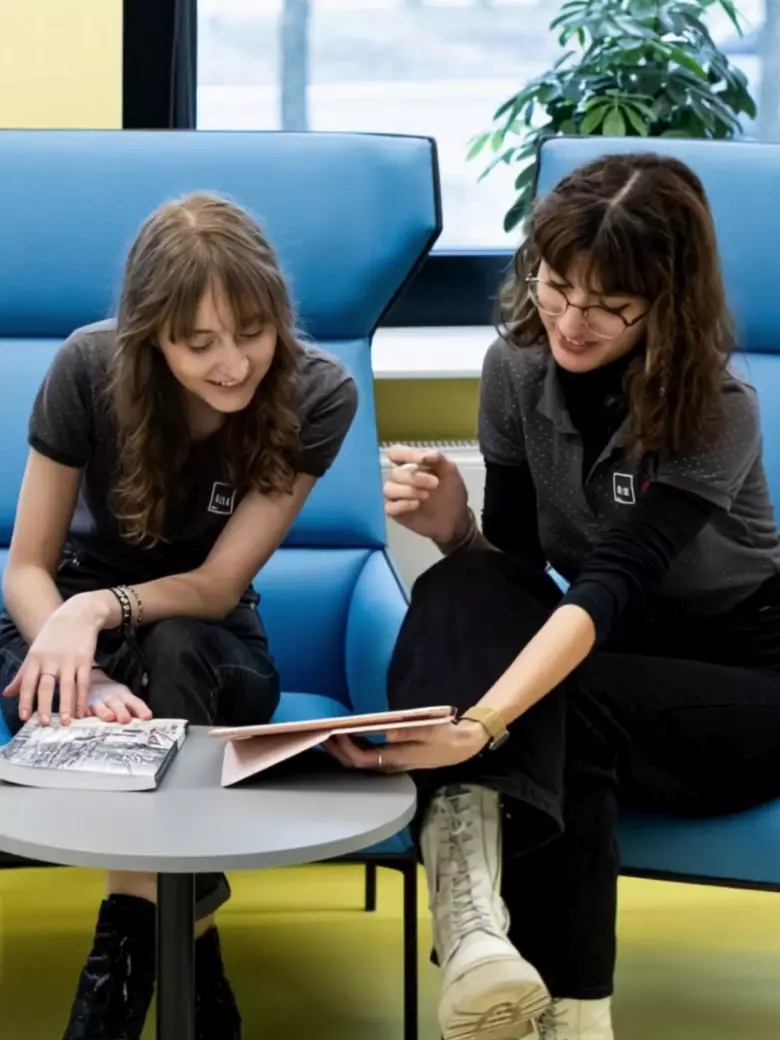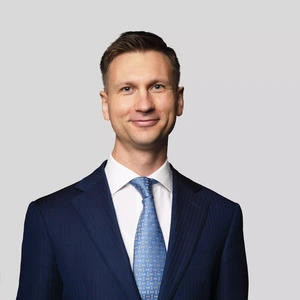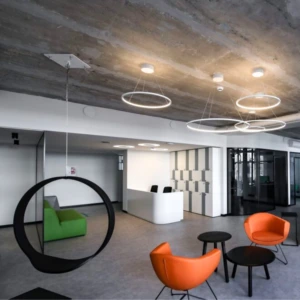The programme is only conducted in Lithuanian language. Entry requirements for this particular programme can be found in the programme description provided in Lithuanian language.
in Lithuanian
The precision of numbers and the power of innovation
This programme combines classical mathematical methods with advanced Industry 4.0 applications. You will gain the skills to become a financial analyst, insurance mathematician, data science expert or fintech specialist. You will be able to delve deeper into machine learning, artificial intelligence and blockchains to solve real challenges in today’s market. As well as becoming leaders in technology and finance, Applied Mathematics graduates will also become the next generation of teachers who can inspire others.

The programme provides high-quality theoretical and practical mathematics knowledge that is recognised internationally. This knowledge will enable you to become an expert in mathematics and compete successfully in the global job market.

The programme encourages personal and professional excellence and provides access to advanced infrastructure, international opportunities and collaboration with leading companies.

In addition to gaining in-depth knowledge of mathematics, you will work in a creative learning environment where you will solve real-world problems and develop innovative solutions.

The programme offers the possibility to choose specialised modules according to personal interests, thus ensuring a focused preparation for a career in finance, technology or other fields, where mathematical applications are used.
A Bachelor’s degree in Applied Mathematics opens up a wide range of career opportunities in Lithuania and abroad. The knowledge you gain in mathematical analysis, statistical modelling and programming will enable you to contribute to the development of new technologies and work in a wide range of fields, from engineering to finance.
Here are some of the careers you can pursue after your studies:
Collects, processes and analyses data to discover relevant business insights and make informed decisions.
Develops mathematical models used for investment appraisal and risk management. Works for both banks and insurance companies.
Develops and implements algorithms used in decision-making processes, automation and robotics to optimise processes and solve complex problems.
| Module name | Credits | Method of organisation |
|---|
| Discrete Mathematics | 6 | On-campus learning |
| Geometry | 6 | On-campus learning |
| Introduction to Mathematics Studies | 6 | On-campus learning |
| Mathematical Analysis 1 | 6 | On-campus learning |
| Information Technologies 1 | 6 | On-campus learning |
| Introduction to Object-Oriented Programming | 6 | On-campus learning |
| Module name | Credits | Method of organisation |
|---|
| Linear Algebra | 6 | On-campus learning |
| Mathematical Analysis 2 | 6 | On-campus learning |
| Media Philosophy | 6 | Blended learning |
| Sustainable Development | 6 | On-campus learning |
| Engineering Economics | 6 | On-campus learning |
| Fundamentals of Finance | 6 | On-campus learning |
| Fundamentals of Object Programming | 6 | On-campus learning |
| Fundamentals of Object-Oriented Programming 2 | 6 | On-campus learning |
| Module name | Credits | Method of organisation |
|---|
| Algebraic Structures | 6 | On-campus learning |
| Differential Equations | 6 | On-campus learning |
| Mathematical Analysis 3 | 6 | On-campus learning |
| Theory of Probability | 6 | On-campus learning |
| Academic and Technical Communication in English (Level C1) | 6 | On-campus learning |
| Academic and Technical Communication in French (Level C1) | 6 | On-campus learning |
| Academic and Technical Communication in German (Level C1) | 6 | On-campus learning |
| Module name | Credits | Method of organisation |
|---|
| Classical Physics | 6 | On-campus learning |
| Databases | 6 | On-campus learning |
| Mathematical Statistics | 6 | On-campus learning |
| Mathematics Software | 6 | On-campus learning |
| Optimization Methods | 6 | On-campus learning |
| Module name | Credits | Method of organisation |
|---|
| Data Analysis | 6 | On-campus learning |
| Machine Learning Methods | 6 | On-campus learning |
| Numerical Methods | 6 | On-campus learning |
| Physics 2 | 6 | On-campus learning |
| Subjects of Specializations | 6 |
| Mathematical Methods for Processing of Digital Images | 6 | On-campus learning |
| Investment Mathematics | 6 | On-campus learning |
| Basics of Accounting | 6 | On-campus learning |
| Fundamentals of Electronics | 6 | On-campus learning |
| Innovation Management | 6 | On-campus learning |
| Design Fundamentals | 6 | On-campus learning |
| Fundamentals of Digital Marketing | 6 | On-campus learning |
| Fundamentals of Enterprises Accounting and Financial Management | 6 | On-campus learning |
| French Language (level A1) | 6 | On-campus learning |
| French Language (level A2) | 6 | On-campus learning |
| French Language (level B1) | 6 | On-campus learning |
| German Language (level A1) | 6 | On-campus learning |
| German Language (level A2) | 6 | On-campus learning |
| German Language (level B1) | 6 | On-campus learning |
| Russian Language (level A1) | 6 | On-campus learning |
| Russian Language (level A2) | 6 | On-campus learning |
| Russian Language (level B1) | 6 | On-campus learning |
| Spanish Language (level A1) | 6 | On-campus learning |
| Spanish Language (level A2) | 6 | On-campus learning |
| Spanish Language (level B1) | 6 | On-campus learning |
| Fundamentals of 3D Modelling | 6 | On-campus learning |
| Design of Analog Integrated Circuits | 6 | On-campus learning |
| Fundamentals of Cognitive Neuroscience | 6 | Blended learning |
| Business Intelligence and Data Mining | 6 | On-campus learning |
| Scripting Languages | 6 | On-campus learning |
| Introduction to Public Governance | 6 | Blended learning |
| Analysis and Translation of Technical Text 2 (English) | 6 | On-campus learning |
| Optional Subjects 2026 | 6 |
| Module name | Credits | Method of organisation |
|---|
| Graph Theory and Network Science | 6 | On-campus learning |
| Product Development Project | 12 | On-campus learning |
| Subjects of Specializations | 12 |
| Cryptology | 6 | On-campus learning |
| Discrete Transforms | 6 | On-campus learning |
| Risk and Uncertainty Analysis | 6 | Blended learning |
| Blockchains and Cryptography | 6 | On-campus learning |
| Methodology of Risk Analysis in Business | 6 | On-campus learning |
| Taxes and Taxation | 6 | On-campus learning |
| Introduction to Practical Electronics | 3 | On-campus learning |
| Modern Electronic Technology | 3 | On-campus learning |
| Sales Management | 6 | On-campus learning |
| User Experience Design | 6 | On-campus learning |
| Search Engine Advertising | 6 | Blended learning |
| Social Media Marketing | 6 | On-campus learning |
| Personal Finance Management | 6 | On-campus learning |
| French Language (level A2) | 6 | On-campus learning |
| French Language (level B1) | 6 | On-campus learning |
| French Language (level B2) | 6 | On-campus learning |
| German Language (level A2) | 6 | On-campus learning |
| German Language (level B1) | 6 | On-campus learning |
| German Language (level B2) | 6 | On-campus learning |
| Russian Language (level A2) | 6 | On-campus learning |
| Russian Language (level B1) | 6 | On-campus learning |
| Russian Language (level B2) | 6 | On-campus learning |
| Spanish Language (level A2) | 6 | On-campus learning |
| Spanish Language (level B1) | 6 | On-campus learning |
| Spanish Language (level B2) | 6 | On-campus learning |
| Fundamentals of Computer Game Development | 6 | On-campus learning |
| Chip Prototyping, Manufacturing and Testing Technologies | 6 | On-campus learning |
| General Neuropsychology | 6 | Blended learning |
| Database Development and Administration | 6 | On-campus learning |
| Programming Services in Cloud Computing | 6 | On-campus learning |
| Ethics and Corruption Prevention in Public Sector | 6 | Blended learning |
| Interpreting Laboratory | 6 | On-campus learning |
| Translation Technologies and Artificial Intelligence | 6 | On-campus learning |
| Optional Subjects 2026 | 12 |
| Module name | Credits | Method of organisation |
|---|
| Mathematical Models of Systems | 6 | On-campus learning |
| Stochastic Processes | 6 | On-campus learning |
| Optional Subjects 2026 | 6 |
| Subjects of Specializations | 12 |
| Business Intelligence and Data Mining | 6 | On-campus learning |
| Data Security | 6 | On-campus learning |
| Neural Network Methods | 6 | On-campus learning |
| Financial Risk Management | 6 | On-campus learning |
| Insurance Mathematics | 6 | On-campus learning |
| Business Analysis and Valuation | 6 | On-campus learning |
| Computer Communications | 6 | On-campus learning |
| Negotiation | 6 | Blended learning |
| Sketching fundamentals | 6 | On-campus learning |
| Brand Management | 6 | On-campus learning |
| Financial Markets and Institutions | 6 | On-campus learning |
| French Language (level B1) | 6 | On-campus learning |
| French Language (level B2) | 6 | On-campus learning |
| French Language (level C1) | 6 | On-campus learning |
| German Language (level B1) | 6 | On-campus learning |
| German Language (level B2) | 6 | On-campus learning |
| German Language (Level C1) | 6 | On-campus learning |
| Russian Language (level B1) | 6 | On-campus learning |
| Russian Language (level B2) | 6 | On-campus learning |
| Russian Language (Level C1) | 6 | On-campus learning |
| Spanish Language (level B1) | 6 | On-campus learning |
| Spanish Language (level B2) | 6 | On-campus learning |
| Spanish Language (level C1) | 6 | On-campus learning |
| Virtual Reality Technologies | 6 | On-campus learning |
| Chip Manufacturing Technologies | 6 | On-campus learning |
| Basics of Neuroscience Engineering | 6 | On-campus learning |
| Debugging of Information Systems Software | 3 | On-campus learning |
| Distributed Databases | 3 | On-campus learning |
| Computer Network and Internet Security | 6 | On-campus learning |
| Theories of Public Governance Organisations | 6 | Blended learning |
| Analysis and Translation of Technical Text 4 (English) | 6 | On-campus learning |
| Language Ecology | 6 | On-campus learning |
| Optional Subjects 2026 | 12 |
| Module name | Credits | Method of organisation |
|---|
| Bachelor’s Degree Final Project | 15 | On-campus learning |
| Professional Internship | 15 | On-campus learning |
The programme is only conducted in Lithuanian language. Entry requirements for this particular programme can be found in the programme description provided in Lithuanian language.
in Lithuanian

Without maths, there would be no progress in the world, so these studies are a great opportunity to be part of it. From simple statistical calculations to artificial intelligence and satellite image reconstruction, the range of lectures is truly wide. Applied mathematics opens the door to the global job market, as the ability to analyse data, model complex systems and optimise processes is valued in any field.

Mathematics has a wide range of applications, enabling one to analyse a wide range of problems. Today, logical thinking, reasoning, analysis and numerical reasoning are part of my everyday work, so the knowledge I have gained at university is really important to me. Applied Mathematics opens up many promising areas in both the academic and business worlds.

The KTU Applied Mathematics study programme is designed for ambitious and innovative people who want to acquire deep knowledge and skills to solve complex challenges. It provides solid knowledge that helps you to get a foothold in the job market. The main competencies that graduates acquire include a deep theoretical background, programming skills and an interdisciplinary approach.
The language of instruction for this programme is Lithuanian, which means that all educational activities are conducted in this language.
Graduates in Applied Mathematics can work in a wide range of fields that require mathematical modelling, analysis and data interpretation. These include IT companies, the financial sector, insurance companies, logistics companies, energy companies and engineering organisations. Graduates can work as data analysts, mathematical experts, statisticians or model developers both in Lithuania and abroad.
In Applied Mathematics, you’ll learn the fundamentals of cryptography, algorithm design and optimisation that are essential for working with blockchains. Additional optional modules or specialised projects can help you deepen this knowledge and prepare you to work in this innovative field.

Talk to us, study with us:
K. Donelaičio St. 73, LT-44249 Kaunas
phone +370 679 44 555
email studijos@ktu.lt
Faculty of Mathematics and Natural Sciences
XI Chamber
Studentų St. 50, LT-51368 Kaunas
email mgmf@ktu.lt
 virtual tour
virtual tour